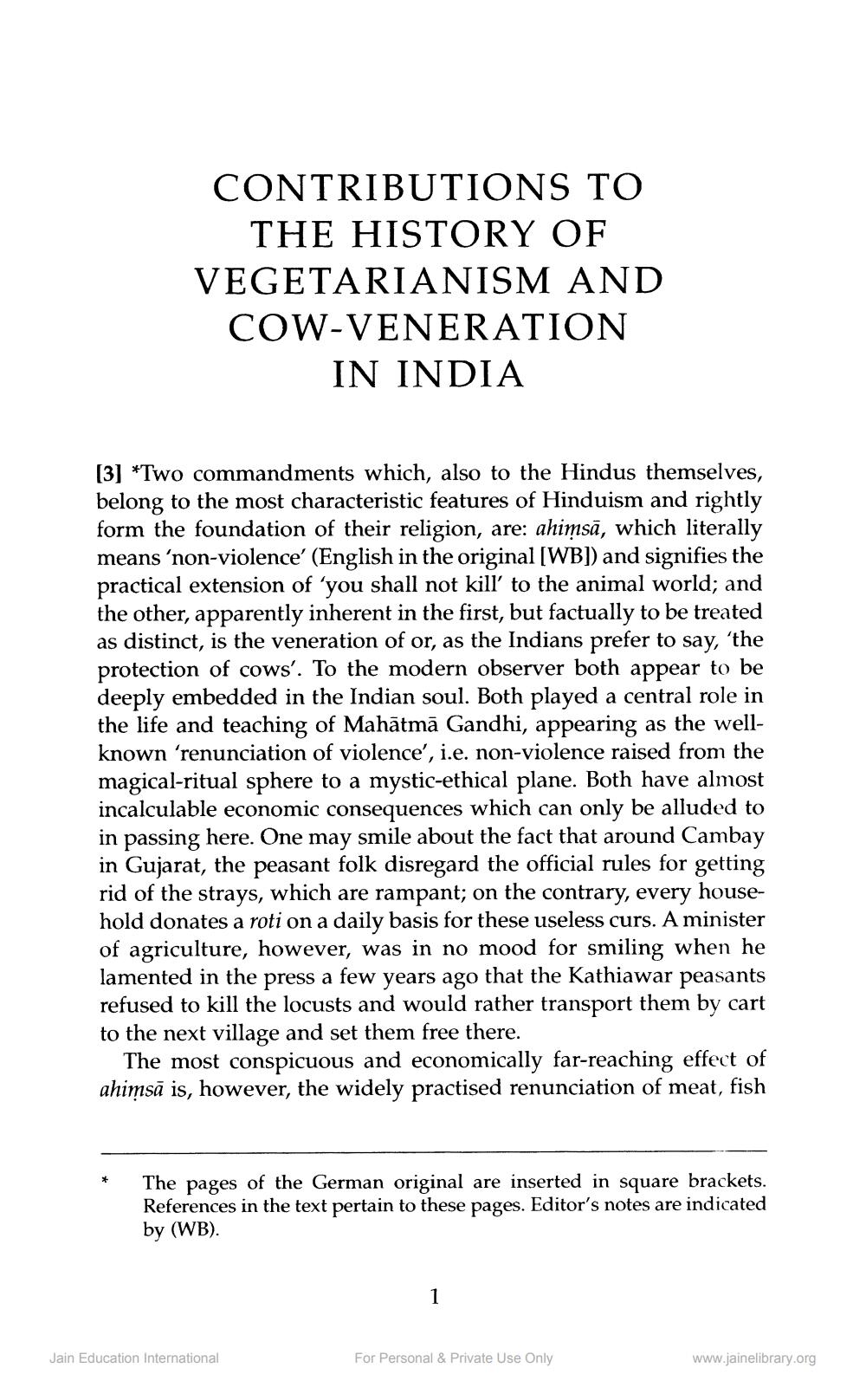________________
CONTRIBUTIONS TO
THE HISTORY OF
VEGETARIANISM AND
COW-VENERATION IN INDIA
[3] *Two commandments which, also to the Hindus themselves, belong to the most characteristic features of Hinduism and rightly form the foundation of their religion, are: ahimsā, which literally means 'non-violence' (English in the original [WB]) and signifies the practical extension of 'you shall not kill' to the animal world; and the other, apparently inherent in the first, but factually to be treated as distinct, is the veneration of or, as the Indians prefer to say, 'the protection of cows'. To the modern observer both appear to be deeply embedded in the Indian soul. Both played a central role in the life and teaching of Mahātmā Gandhi, appearing as the wellknown 'renunciation of violence', i.e. non-violence raised from the magical-ritual sphere to a mystic-ethical plane. Both have almost incalculable economic consequences which can only be alluded to in passing here. One may smile about the fact that around Cambay in Gujarat, the peasant folk disregard the official rules for getting rid of the strays, which are rampant; on the contrary, every household donates a roti on a daily basis for these useless curs. A minister of agriculture, however, was in no mood for smiling when he lamented in the press a few years ago that the Kathiawar peasants refused to kill the locusts and would rather transport them by cart to the next village and set them free there.
The most conspicuous and economically far-reaching effect of ahimsa is, however, the widely practised renunciation of meat, fish
The pages of the German original are inserted in square brackets. References in the text pertain to these pages. Editor's notes are indicated by (WB).
Jain Education International
1
For Personal & Private Use Only
www.jainelibrary.org




